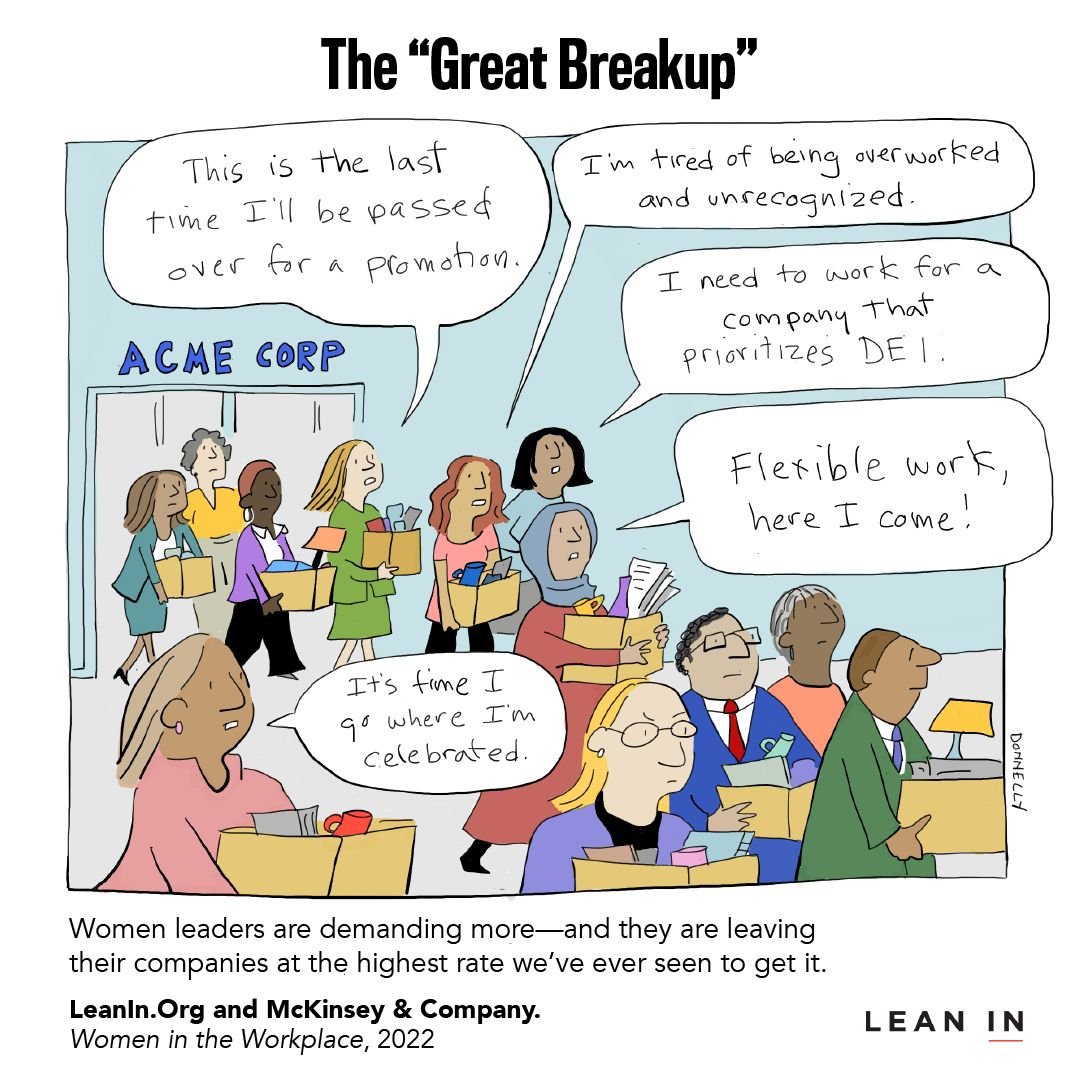The 2022 annual #WomenInTheWorkplace report from Lean In & McKinsey & Company was released on October 18th. According to the report, women are demanding more from work, and they’re leaving their companies in unprecedented numbers to get it.
Women are already significantly underrepresented in leadership: only 1 in 4 C-suite leaders is a woman, and only 1 in 20 is a woman of color. Now, companies are struggling to hold on to the relatively few women leaders they have.
Three primary factors are driving their decisions to leave:
1. Women leaders are ambitious, but they experience microaggressions that signal that it will be harder for them to advance.
Women leaders are 2x as likely as men leaders to be mistaken for someone more junior.
37% of women leaders have had a coworker get credit for their idea, compared to 27% of men leaders.
2. Women leaders are overworked and under-recognized—they're doing more to support employees and foster inclusion, but this important work is going mostly unrewarded.
Women leaders are 2x as likely as men leaders to spend substantial time on DEI work.
40% of women leaders say their DEI work isn’t acknowledged at all in performance reviews.
43% of women leaders are burned out, compared to only 31% of men at their level.
3. Women leaders want to work for companies that are committed to flexibility, employee well-being, and DEI.
49% of women leaders say flexibility is one of the top three things they consider when deciding whether to join or stay with a company, compared to 34% of men leaders.
Women leaders are more than 1.5x as men at their level to have left a previous job because they wanted to work for a company that was more committed to DEI.
The factors that drive women leaders to leave their companies are even more important to young women. Young women care deeply about the opportunity to advance. Young women are also more likely than women leaders to say they’re increasingly prioritizing flexibility and company commitment to the well-being and DEI. Two-thirds of women under 30 say they would be more interested in advancing if they saw senior leaders with the work-life balance they want.
Companies that don’t take action are at risk of losing women leaders, which will have serious implications.
The report gives new priorities to our need to redefine how we live and work. Women are still under-represented in leadership and are demanding more, and they're willing to walk away if they don't get it. What are they looking for? A culture of flexibility, diversity, and inclusion, and role models who practice what they preach when it comes to work-life balance.
We need more women at every table where decisions are made. We need to paid fairly, treated with respect, and given equal opportunities to learn, grow, and lead. Inclusive workplaces bring out the best in everyone. We can advocate to make the world a better place for women.
